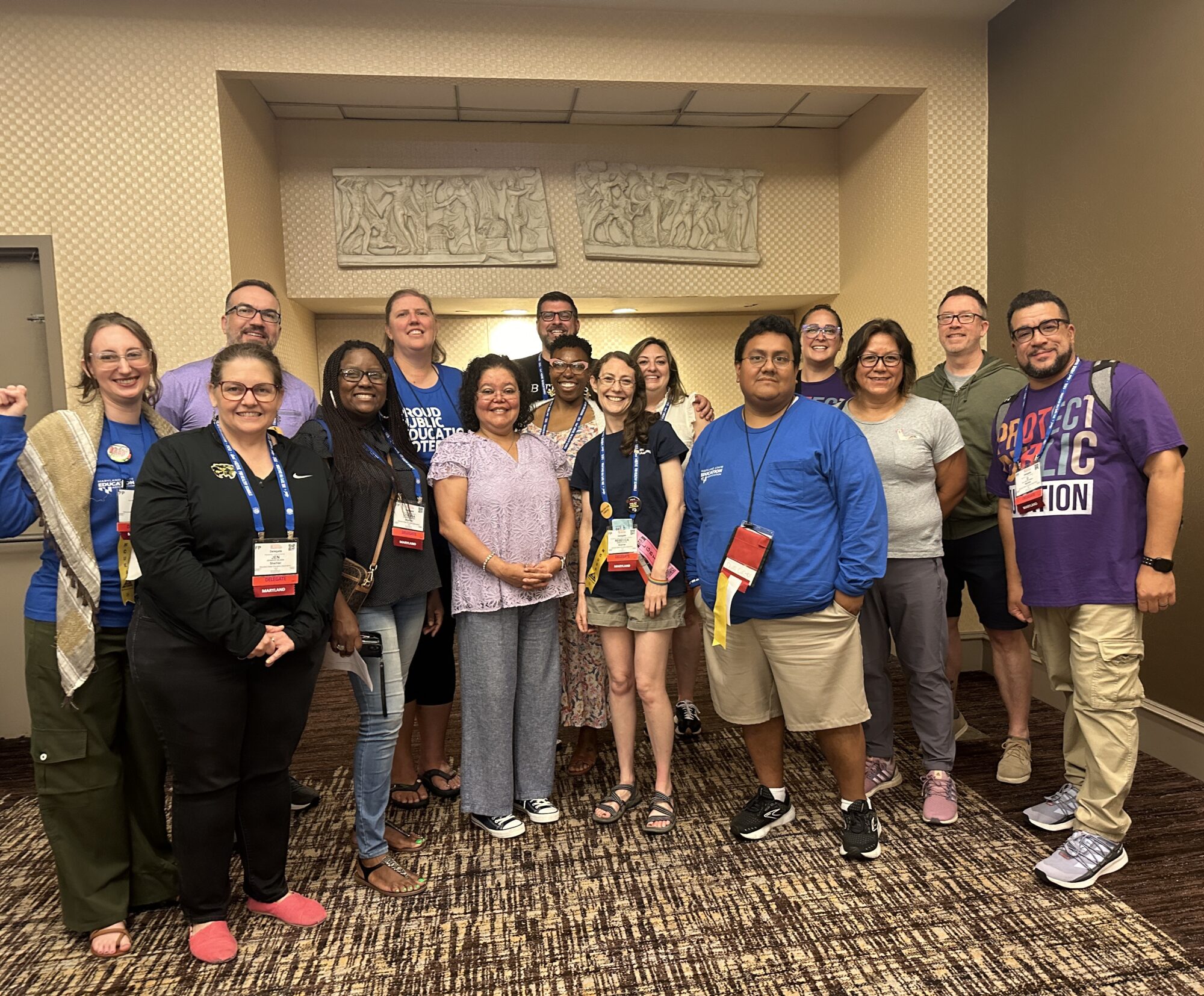About the Fund for Children and Public Education
The HCEA/MSEA/NEA Fund for Children and Public Education is the Association’s political action committee. The Fund has helped HCEA elect pro-education members of the Board of Education and County Council and as Chief Executive. It helps to elect pro-education candidates to state and national office. It has worked to elect pro-public education candidates since 1972. Over the years, elected officials supported by the Fund have helped change the face of public education, scoring wins for our nation’s public schools, students, and education employees.
To receive support from the Fund, candidates go through a screening and evaluation process in which HCEA members are closely involved. Only those candidates who measure up on the issues receive HCEA’s and MSEA’s recommendation and support. Our support goes to candidates – regardless of political party – who measure up on the issues that Association members care about: protecting children’s health and safety, preparing students for jobs of the future, strengthening public education in America, and respecting the rights of school employees.
The Fund for Children and Public Education is funded exclusively through voluntary contributions from Association members. HCEA carried out a fund drive to raise contributions last spring. Many new members are signing up to contribute a dollar or two from each paycheck. Association Reps will be active in next spring’s campaign for the Fund for Children and Public Education. To find out more about the Fund and to sign up to lend your support, contact HCEA.
Some Questions and Answer about Association Political Action
How are my PAC dollars spent?
HCEA uses part of your contribution to support candidates in local races (school board, county executive and council, etc.). Part is forwarded to MSEA for use in legislative and statewide races based on recommendations from HCEA. A portion is forwarded to the NEA Fund for Children and Public Education.
Why does HCEA need contributions? Why not use dues dollars for political contributions?
HCEA cannot and does not use any dues dollars for political action. By state and federal law, only voluntary funds collected and deposited in a separate political action fund can be used to support candidates.
HCEA and MSEA must participate in elections to ensure the election of pro-education candidates and incumbent friends of education. The stakes are too high for us to sit on the sidelines. Campaigns are expensive. We get involved in politics to protect our membership. Every decision – from teacher certification, pensions, privatization, right to due process for school employees, student loans and grants, Title I and technology availability – is a political decision at either the local, state and/or national levels. The stakes are too high for us to sit on the sidelines.
I don’t want anyone telling me how to vote!
HCEA doesn’t “endorse” candidates or tell our members how to vote. The HCEA Government Relations Committee interviews candidates after analyzing voting records, questionnaires and positions on public education issues. They make recommendations to the Board of Directors. The HCEA Board recommends to the Rep Council and the Rep Council votes to recommend candidates to the membership. All recommendations are based on candidate positions on issues, voting records and other pertinent data. Political party affiliation does not matter. Both Democrats and Republicans have been recommended and have received contributions.
I really don’t like politics. Why is HCEA so involved?
With or without HCEA member involvement, there will be elections. Those elected will determine what kind of public education system we have. Either we will be on the outside watching or we will be participating in the process to help shape the outcome–for our membership and students.
What kind of issues in public education are determined by politics? Every decision about our schools and our jobs is made by someone who was elected to political office or was appointed by a public official. Here’s a partial listing:
- Privatization of services/teaching/support
- Retirement/pension fund
- Health care (employees and students)
- School funding: school aid, higher education
- Professional development/training
- Collective Bargaining Rights
- Title 1, Headstart, IDEA
- Student loan programs
- Charter schools
- Certification standards/licensing
- Transportation of students
- Building maintenance/construction
- School breakfast/lunch programs
- Technology: hardware, software, training
- Special education rules and regulations
- Professional standards
- Class-size mandates

